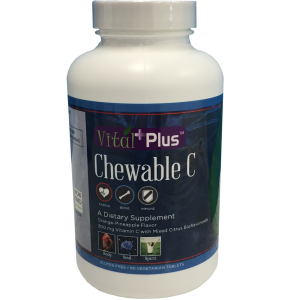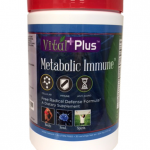High doses of Vitamin C may lead to a greater reduction in common cold duration

High Doses of Biotin in Chronic Progressive Multiple Sclerosis
April 11, 2017
The Healing Power of Cayenne Pepper
April 19, 2017The most extensively studied human infection is the common cold.
The term “the common cold” does not refer to any specifically defined disease, yet the set of symptoms that is called “the common cold” is personally familiar to practically everybody [1]. Typically the symptoms consist of nasal discharge, sore throat, cough, with or without fever. Young children typically have half a dozen colds per year, and the incidence decreases with age so that elderly people have colds about once per year [2]. The common cold is the leading cause of acute morbidity and of visits to a physician in high-income countries, and a major cause of absenteeism from work and school. The economic burden of the common cold is comparable to that of hypertension or stroke [3].
Vitamin C administration does not decrease the average incidence of colds in the general population, but it did halve the number of colds in physically active people. The majority of controlled trials have used a modest dosage of only 1 g per day of vitamin C. The pooled effect of all published studies has shown a statistically highly significant difference between the vitamin C and placebo groups, which indicates a genuine biological effect.
The effect of vitamin C on the duration and severity of the common cold has been studied in regular supplementation trials and in therapeutic trials. Regular supplementation means that vitamin C was administered each day over the whole study period, and the outcome is the duration and severity of colds that occurred during the study. Therapeutic vitamin C trial means that vitamin C administration was started only after the first common cold symptoms had occurred and the duration of colds were then recorded.
The author of one dosage dependant study, Dr. Hemilä, concludes that “given the consistent effect of vitamin C on the duration of colds, and its safety and low cost, it would be worthwhile for individual common cold patients to test whether therapeutic 8 g/day vitamin C is beneficial for them. Self-dosing of vitamin C must be started as soon as possible after the onset of common cold symptoms to be most effective.”
Call today to test and find out if you are deficient in this essential vitamin. AgeVital provides Vitamin C Topical Creams, IV’s, Chewable tablets, Powder and Injections.
Journal Reference:
-
Harri Hemila. Vitamin C and Infections. Nutrients, 2017; 9 (4): 339 DOI: 10.3390/nu9040339
-
Eccles, R. Is the common cold a clinical entity or a cultural concept? Rhinology 2013, 51, 3–8. [Google Scholar] [PubMed
-
Monto, A.S.; Ullman, B.M. Acute respiratory illness in an American community: The Tecumseh Study. JAMA 1974, 227, 164–169. [Google Scholar] [PubMed]
-
Pauling, L. Vitamin C and the Common Cold; Freeman: San Francisco, CA, USA, 1970. [Google Scholar]

300 milligrams of Vitamin C with bioflavanoids to increase effectiveness of Vitamin C in a great tasting cherry or orangepineapple flavored chewable tablet. Vitamin C supports immune system function and collagen health. The primary function of Vitamin C is maintaining collagen.* Vitamin C also helps form red blood cells, provides antioxidant protection against free radicals and supports the immune system. cGMP certified product, Organic and NONGMO. Fromulated by Dr.Jenny herself.
 Metabolic Immune is a delicious drink, mixed with supplements with ORCA berries to support immune health. Each serving is designed to contain at least 3000 ORAC units and contains minimum of 2 grams of fiber for digestive tract support.*For best results mix 1 to 2 scoops once a day in a glass of water.
Metabolic Immune is a delicious drink, mixed with supplements with ORCA berries to support immune health. Each serving is designed to contain at least 3000 ORAC units and contains minimum of 2 grams of fiber for digestive tract support.*For best results mix 1 to 2 scoops once a day in a glass of water.
Click Here to Order Now!
‘Call us at 888-388-7237 to schedule a wellness consultation or send us an e-mail at info@agevital.com.
*Results may vary. Information and statements made are for education purposes and are not intended to replace the advice of your doctor. The views and nutritional advice expressed by AgeVital Pharmacy are not intended to substitute for medical service. If you have a severe medical condition or health concern, see your physician or give us a call and schedule a consultation with one of our providers. ©AgeVital Pharmacy




